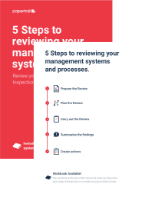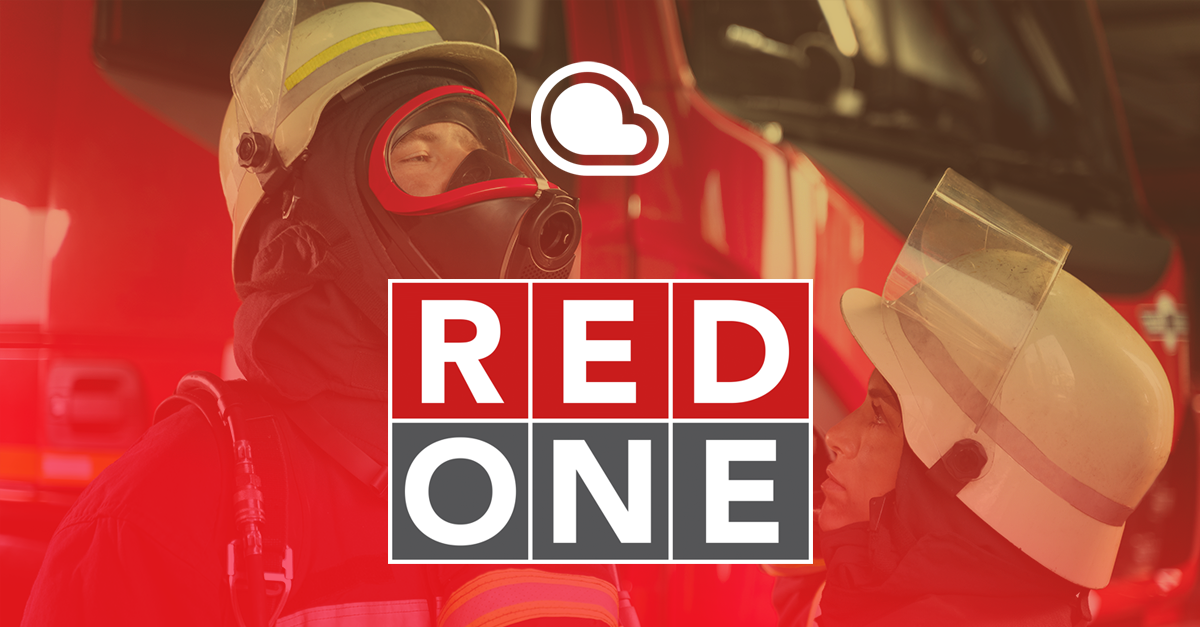Channel Training Interview: A Perspective on Safety Management & Apprenticeships in the Outdoors
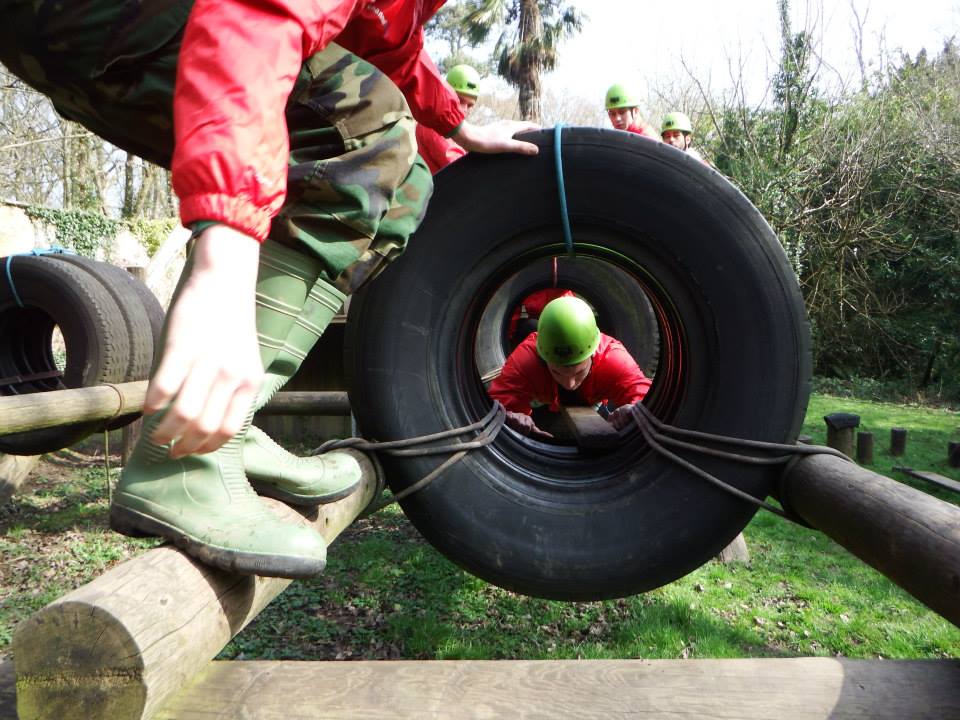
James Whittaker is a Director at Channel Training Ltd, a specialist provider of government funded training and professional development for the outdoors industry. With over twenty years’ experience in adventurous activities and outdoor education, James has some great insight and thoughts which he was kind enough to share with Papertrail. We caught up with James for a chat about safety management and Channel Training’s work with apprenticeships in the outdoors.
Tell us about Channel Training – what do you do?
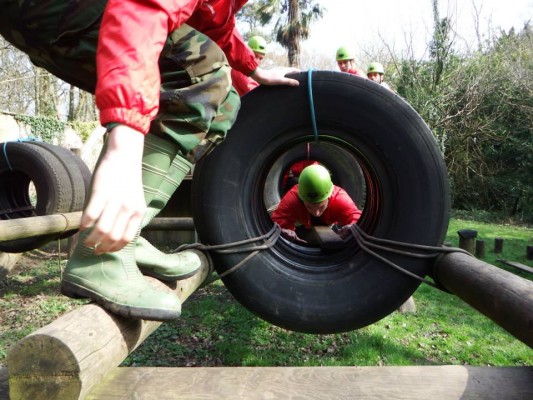
At Channel Training Ltd we specialise in delivering government funded apprenticeships and training programs for the outdoor industry.
We deliver apprenticeships, professional leadership training and specialist adventure programming for clients including the Department of Work and Pensions, Princes Trust and Job Centre Plus, as well as local authorities and large organisations in the private sector.
Dealing with such large organisations, is safety management something they delve into in a lot of detail before deciding to work with you?
Obviously safety is a hugely important issue for our clients. We have to evidence the robustness of our safety management systems along with everything else when tendering for work with these organisations. Generally speaking we don’t share risk assessments with clients because they’re internal, working documents – I’m sure lots of your readers will be familiar with this too. But once we explain this and have a conversation around it, clients understand why we’re not keen to share risk assessments with them. Generally speaking, they understand that we’re fully licensed, regulated and inspected and this gives them confidence.
Channel Training works extensively with freelancers and sub-contractors for delivery of your programmes. Does this present challenges when it comes to safety management systems and if so, how do you overcome them?
To a certain extent then yes it does, especially if freelancers have been working in other organisations with their own local operating procedures. They need to be inducted into our own systems and that’s something we have to take into account. But we only work with licensed sub-contractors so generally they are all aware of what needs to be done. It’s just a case of training them on our own systems and following-up.
Generally speaking – feeling like you’re on top of recording keeping on a continual basis is a real challenge for anyone in adventurous activities. Any system that gives you a common sense, organic way to keep on top of you record keeping is really invaluable and I’m looking forward to seeing how Papertrail will help us with this.
On the topic of licensing – how do you think licensing and regulation of adventurous activities will evolve over the next few years?
It’s no secret that the HSE is keen to remove the inspectable element of licensing. I don’t think the adventurous activities sector will continue to be licensed and inspected in the same way as it is now. It’s just not sustainable. The current system of licensing and inspection for adventurous activities puts rock climbing on a par with transporting nuclear waste! But obviously if the current system disappears, some scheme providing clients and interested parties (eg parents) with assurances about safety management and good practice will have to take its place.
I think it will probably end up being some kind of voluntary badging scheme. There are many organisations who could host a badging scheme: the Institute for Outdoor Learning, Association of Heads of Outdoor Education Centres, Adventure Activities Industry Advisory Committee, Council for Learning Outside the Classroom, British Activity Providers Association, etc. Regardless of who does it, the key thing is that providers will need to evidence how they operate. It won’t be enough to just say they’re a member, they’ll need evidence to show they keep up with the requirements of the scheme in practice.
Do you think a voluntary scheme would give clients the security and confidence they need?
I think so. If you look at the travel industry for example, you have symbols like ATOL and ABTA – consumers look out for these and know what they mean. If the adventurous activities sector adopts a similar badge scheme, the key thing obviously is to ensure everyone understands the difference between the different awards and schemes. So if a provider is regulated by BAPA or AdventureMark for example, they know what that actually means. It will be up to our industry to take responsibility for educating users and making sure it’s really clear.
Do you think provider could be trusted to self-regulate without official intervention from the HSE?
The adventurous activities sector is certainly “rich and diverse” but providers already self-regulate in practice. A small provider may only require an inspection once every three years under the current system. I think a voluntary scheme could work well and as an industry blessed with a great deal of professional integrity we’re grown-up enough to be able to manage it.
If there’s one thing you would change about the adventurous activities sector, what would it be?
If I could wave a magic wand, I would love to dispel the myths surrounding apprenticeships in the outdoors. There’s an awful lot of misunderstanding about apprenticeships and NVQs. They seem to be looked down on by many adventure activity providers – perhaps because they have been done badly by Further Education establishments or the training model used just doesn’t fit with the needs of those providers.
The kind of overhanging myth in the industry is that only NGB qualifications count and it’s not really useful to do an apprenticeship. But apprenticeships give individuals a really solid foundation that takes into account all aspects of working in adventurous activities – not just the technical skills and competencies which you get from an NGB Award. The NGB Awards alone don’t give you everything you need. The best model and framework encompasses all aspects of professional development – not just the technical requirements of the job.
We listened to a presentation Marcus Bailie gave at the Outdoor North Wales Forum recently and wrote about it here on the Papertrail blog. Marcus talked about human error accidents and how these are often caused by instructor inexperience. Do you think apprenticeships can help improve safety in the outdoors?
Absolutely. We’ve had instructors training with us in their late twenties – they have been working in the outdoors for years but just feel there’s something missing. They do an NVQ Level 3 in Outdoor Education and leave with their confidence, motivation and enthusiasm soaring. They fall back in love with their job and their professionalism reaches new heights. Equally we work with new entrants to the profession who, at 16 or 17, need a firm grounding in the essential values of outdoor learning in order to anchor their day to day work and stay bright and motivated. There really is huge value and breadth in an NVQ when done properly by a specialist provider such as ourselves, and not just a Sports and Leisure course at a local college for example. The wider industry can and should recommend apprenticeships.
What have been your biggest successes at Channel Training to-date?
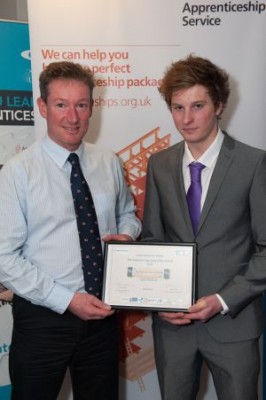
James with Ben Sawyer, who was nominated for Somerset Advanced Apprentice of the Year
The biggest success overall has to be that we’re still here and growing in difficult times. We work really hard to meet the needs of every individual and organisation we work with and are proud that we’re trusted enough to get great referrals and repeat business.
Two of our apprentices were nominated for Apprentice of the Year Awards this year in Somerset and Oxfordshire. We were successful last year in tendering to deliver the Level 3 Apprenticeship pilot in the Outdoors across Wales due mainly to our track record in England as the largest specialist provider of the Outdoor Programmes NVQ.
We had a celebration day recently where graduates from one of our JCP programmes had the chance to talk to potential employers about their experiences and what they had learned. Four out of twelve were offered jobs on the day, and another four secured jobs straight after leaving the programme. Eight young people who had previously been unemployed for at least six to nine months, and in many cases had some quite severe challenges to cope with. These are individuals who have never really been given a chance before. The feedback we get is incredible, we’ve had thank you letters two sides long. To know we’re able to make that kind of difference is amazing.
Finally – what do you love most about what you do?
The joy for me really is the people. We work with so many different groups and clients; from the one-man band who runs a small adventure activity outfit from the back of his van, right up to big private providers like Kingswood and organisations such as Local Authorities and the DWP. Regardless of who you’re working with, there really is such a brilliant buzz working in the outdoors.
To think that this sector has retained so much optimism and positivity despite the challenges faced…. It really is testament to the strength and calibre of individuals in this industry.
A huge thank you to James for an inspiring and insightful interview. To find out more about Channel Training, go to their website or take a look at their Facebook Page.
Do you agree with James on the future of licensing for adventure activities? Do you have a perspective on apprenticeships or training that you’d like to share? If so, please leave a comment or get in touch – we’d love to hear from you.
Improve your inspection management system today
